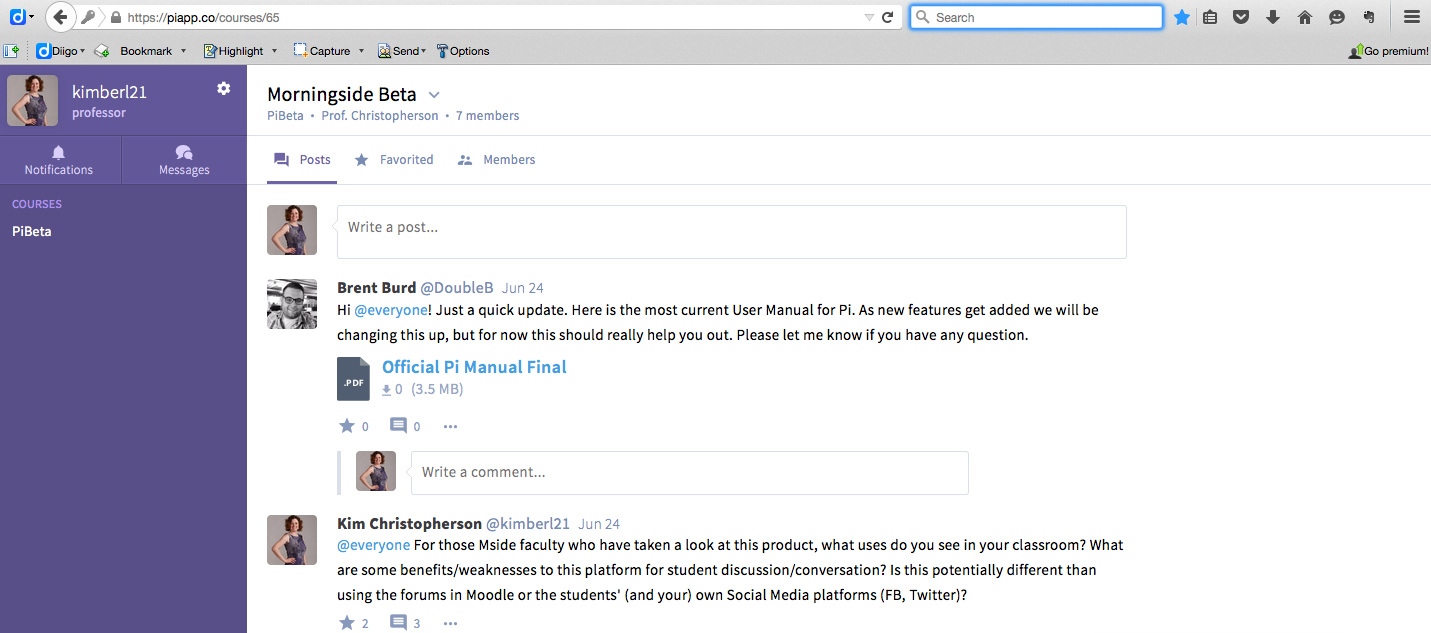Earlier this summer I was contacted by a gentleman of a new Internet company that is developing a new communication application for the classroom (online or traditional). The product is called Pi (https://piapp.co/) and it basically uses a Twitter/Facebook-type interface and brings it into a course LMS (instructor just links to the Pi course page from the LMS).
The creators of this application voice their frustration with the traditional communication methods used in learning management systems (i.e. e-mail and forums) finding them to be less engaging with students not really interacting with one another as much as they could. So they set out to create an improved method.
The major differences as I see it are two-fold. 1) the interface is more like a social media platform that many students are very familiar with and 2) there are functions that push students to be more actively involved in discussions within this interface.
This is what the computer version of Pi looks like:
As you can see it looks a little like a twitter feed, but has more of the posting ability of Facebook (not limited to 140 characters). This is a familiar interface for students, more so than some forum interfaces.
There are also mobile versions of this for both iOS and Android (not sure about Windows). Students can have the option of having push notifications active for Pi on their phones, which means, when there is a new post or reply they get an alert. Rather than depending on students going to visit a forum site to see if there are new posts or replies, now their device can alert them immediately. There is also the option of subscribing to e-mail alerts which again directs users to the conversations.
If you are interested in learning more about Pi, feel free to contact Brent Burd for a free account (Brent@piapp.co). Just let him know you are an instructor at Morningside College and are interested in testing out the product.
If you want to join my test class in Pi you can use this link (http://piapp.co/join/c439c) to join up and become a member of this ‘course.’ We can use this as something of a sandbox to play around with if you please.
For more information here are the online sites for Pi:
Website: https://piapp.co/
Twitter: https://twitter.com/piappHQ
Facebook: https://www.facebook.com/piapphq?fref=nf
